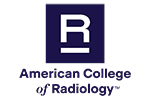Indeterminate Renal Mass
Kidney (renal) masses are sometimes unexpectedly found when imaging is done on the abdomen. Although some of these masses may be harmful, many are not problematic. Imaging tests can help figure out which masses are concerning and need follow-up. The most common imaging tests for a kidney mass include abdominal ultrasound (US) with contrast, a CT scan of the abdomen with and without intravenous (IV) contrast, or an MRI abdomen test with and without IV contrast. US uses gas-filled microbubbles for contrast. CT uses an iodinated contrast agent. MRI uses gadolinium contrast. These tests are equivalent to each other, so only one test would usually be done.
For people in whom gadolinium contrast should not be used, US with contrast, CT scan with and without iodinated IV contrast, or MRI without contrast is usually appropriate. For people in whom iodinated CT contrast agent should not be used, either MRI with and without gadolinium contrast or US with contrast is usually appropriate.
For people in whom neither gadolinium or iodinated IV contrast should be used, an ultrasound of the kidneys from the back (retroperitoneal kidney US), US abdomen with contrast, or MRI abdomen without contrast is usually appropriate. CT abdomen without contrast may also be appropriate.
For more information, see the Renal Cysts page.
This page was reviewed on December 15, 2021


